Books to Celebrate Israel at 70
Seventy years is a biblical lifetime, 70 rabbis make up a Sanhedrin, the Torah presents us with 70 faces, and today Israel is 70 years old. We asked 70 leading Israeli and American scholars, novelists, critics, policymakers, and public intellectuals for their favorite books about Israel. Here are their top choices.
Amos Oz, A Tale of Love and Darkness
Our contributors recommended many wonderful histories, memoirs, and novels. But the book that received the most votes overall is a rich combination of the three. Robert Alter explains: “This is surely Oz’s best book, exhibiting his gifts as a novelist. It tells the story of his growing up in Jerusalem in the 1940s. It is of course a personal story, centering on the death of his mother when he was twelve, but it also conveys a rich sense of life in the Yishuv in the last decade of the British Mandate, incorporating wonderfully comic scenes as well as wrenching ones.”
Yossi Klein Halevi, Like Dreamers: The Story of the Israeli Paratroopers Who Reunited Jerusalem and Divided a Nation
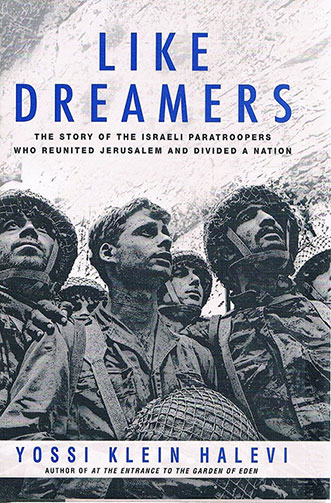 “A beautifully written account of seven young paratroopers and, through them, of Israel today,” says Elliott Abrams. Asher Lopatin adds: “This book really lays out the political and social landscape of Israel better than any other.” (The late Alan Mintz reviewed it for us when it first appeared.) Other personal accounts and war stories that topped our list: Avraham Shapira’s The Seventh Day: Soldiers’ Talk about the Six-Day War, about which Rachel Biale said, “It was here that I began my journey of discovery into traditional Judaism.” We also recommend Matti Friedman’s Pumpkinflowers: A Soldier’s Story of a Forgotten War, which Sara Hirschhorn calls “a searing memoir of the Lebanon war and how it shaped a generation.” Matti Friedman himself recommends Yoram Kaniuk’s autobiographical novel Tashach (English title: 1948).
“A beautifully written account of seven young paratroopers and, through them, of Israel today,” says Elliott Abrams. Asher Lopatin adds: “This book really lays out the political and social landscape of Israel better than any other.” (The late Alan Mintz reviewed it for us when it first appeared.) Other personal accounts and war stories that topped our list: Avraham Shapira’s The Seventh Day: Soldiers’ Talk about the Six-Day War, about which Rachel Biale said, “It was here that I began my journey of discovery into traditional Judaism.” We also recommend Matti Friedman’s Pumpkinflowers: A Soldier’s Story of a Forgotten War, which Sara Hirschhorn calls “a searing memoir of the Lebanon war and how it shaped a generation.” Matti Friedman himself recommends Yoram Kaniuk’s autobiographical novel Tashach (English title: 1948).
David Grossman, To the End of the Land
Adam Kirsch told us, “If any book qualifies as the great Israeli novel, it’s this moving, ethically searching story about a woman who fears she might have to sacrifice her child for her country.” (Alan Mintz reviewed that one for us, too.) Many other novels were enthusiastically recommended, including Only Yesterday, S. Y. Agnon’s masterpiece about the early Jewish pioneers. A little farther off the beaten path and new to English readers is Yitzhak Shalev’s Parashat Gavriel Tirosh (forthcoming in Hillel Halkin’s translation as The Gavriel Tirosh Affair). Ruth R. Wisse recommended it to us, saying, “This is the novel I would have wanted to read as a teenager. The teenager in me still powerfully responds to it.” On the American side, we received several nominations for two Philip Roth novels, The Counterlife and Operation Shylock.
Theodor Herzl, Old-New Land
 Shlomo Avineri has written that Herzl’s classic Altneuland is a bad novel but an important and prescient book. Historian Michael Brenner, author of the very recent In Search of Israel: The History of an Idea, suggests that readers should revisit Herzl’s utopian novel every seven years. Alternatively, you can read one of the many Israeli novels that respond to it, for instance Eshkol Nevo’s Neuland, set in a fictitious, modern-day Israeli diaspora in Argentina. If exploring Zionism through novels is not your thing, you can instead opt for Ehud Luz’s Wrestling with an Angel: Power, Morality, and Jewish Identity (Michael Walzer describes it as “a history of Zionist thought that illuminates the present moment”) or Arthur Herzberg’s classic, The Zionist Idea. Or try contributor Gil Troy’s recently released overhaul: The Zionist Ideas: Visions for the Jewish Homeland—Then, Now, Tomorrow.
Shlomo Avineri has written that Herzl’s classic Altneuland is a bad novel but an important and prescient book. Historian Michael Brenner, author of the very recent In Search of Israel: The History of an Idea, suggests that readers should revisit Herzl’s utopian novel every seven years. Alternatively, you can read one of the many Israeli novels that respond to it, for instance Eshkol Nevo’s Neuland, set in a fictitious, modern-day Israeli diaspora in Argentina. If exploring Zionism through novels is not your thing, you can instead opt for Ehud Luz’s Wrestling with an Angel: Power, Morality, and Jewish Identity (Michael Walzer describes it as “a history of Zionist thought that illuminates the present moment”) or Arthur Herzberg’s classic, The Zionist Idea. Or try contributor Gil Troy’s recently released overhaul: The Zionist Ideas: Visions for the Jewish Homeland—Then, Now, Tomorrow.
Assaf Inbari, Habayta
Several recommenders enthusiastically endorsed Assaf Inbari’s Habayta (Home), which Itamar Rabinovich calls “an excellent example of contemporary Israeli writing.” Want more on kibbutzim? Try Kibbutz Makom, “A wonderful, multi-generational narrative history of an unnamed kibbutz (later revealed to be Beit Hashita), which tells the story of the kibbutz movement and of the founding of the state through a series of powerful interviews,” says Yossi Klein Halevi.
Anita Shapira, Ben-Gurion: Father of Modern Israel
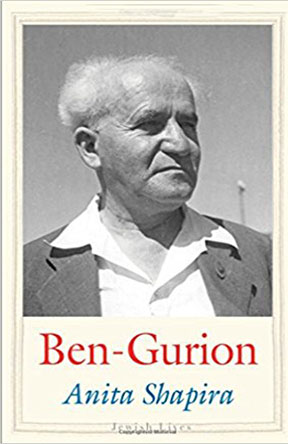 Several contributors recommended Anita Shapira’s recent biography of David Ben-Gurion. Prefer autobiography? We can also recommend Gershom Scholem’s classic memoir From Berlin to Jerusalem or Chaim Weizmann’s Trial and Error. Those who are very ambitious might enjoy diving into Joseph Schechtman’s epic two-volume biography of Vladimir Jabotinsky: Rebel and Statesman and Fighter and Prophet.
Several contributors recommended Anita Shapira’s recent biography of David Ben-Gurion. Prefer autobiography? We can also recommend Gershom Scholem’s classic memoir From Berlin to Jerusalem or Chaim Weizmann’s Trial and Error. Those who are very ambitious might enjoy diving into Joseph Schechtman’s epic two-volume biography of Vladimir Jabotinsky: Rebel and Statesman and Fighter and Prophet.
Yehuda Amichai, The Poetry of Yehuda Amichai
We had many poetry recommendations: Natan Alterman’s Stars Outside, Rachel Bluwstein’s Rachel’s Poems, Avrom Sutzkever’s Lider fun togbukh (Poems from a Diary). But Amichai far outstripped them all. Here is the poet himself on Jerusalem, translated by Benjamin and Barbara Harshav:
Jerusalem is low, crouching between her mountains,
Not like New York, for example.
Two thousand years ago, she crouched
In a wonderful lunge.
All other cities ran great
Circles in the arena of time, won or lost,
And died. Jerusalem remained in a lunge:
All victories are taut and concealed in her. All defeats.
Her strength grows and her breath is calm
For a race even outside the arena.
What are you reading this Yom HaAtzma’ut?
Happy birthday, Israel.
Comments
You must log in to comment Log In
Suggested Reading
Something Antigonus Said
When the Saducees misinterpreted Antigonus of Sokho, they lost eternity--at least that's what the Rabbis thought.
The Rebbe and the Yak
What do you do when your ancestor appears to you in a dream saying that he is trapped inside the body of a Tibetan yak? If you're the Ustiler Rebbe in Haim Be'er's new novel, you go to Tibet to find him, of course.
All the Good Things of Spain
The greatest Hebrew poet gets the English bio he deserves.
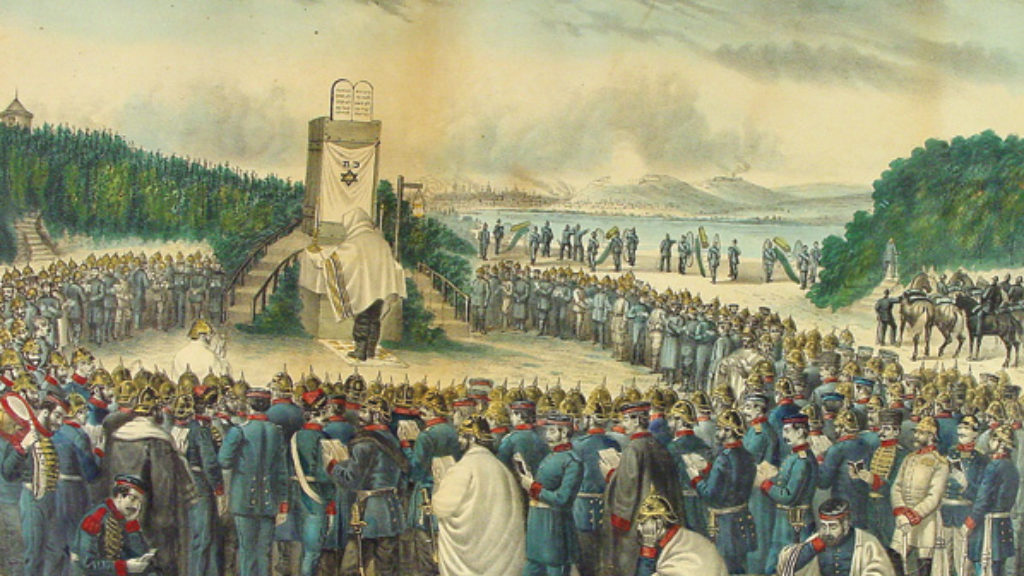
Rallying Round the Flags
Derek Penslar's new book returns to aim Jewish soldiers of the diaspora to their rightful place in Jewish history.
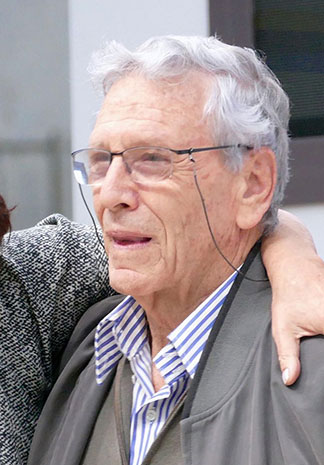

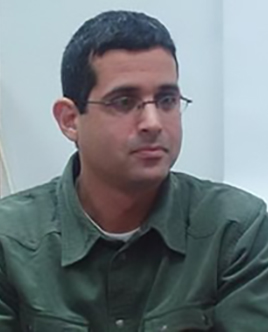

danmatz1
Thank You
daized79
I still like Yoram Hazony's The Jewish State. And for war novel Haim Sabato's Adjusting Sights. Incredible.